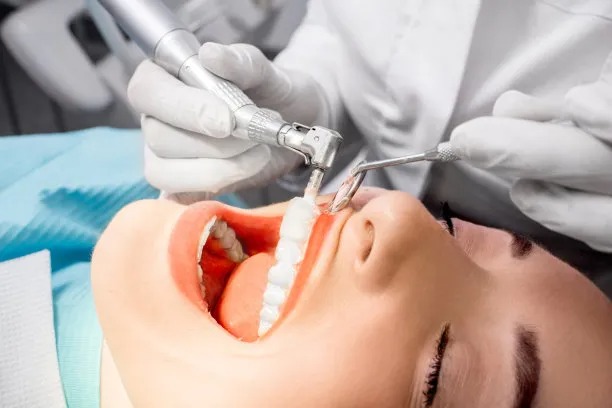Understanding the Link Between Periodontal Disease and Systemic Health Implications in Adults Around the World
Summary: Periodontal disease is increasingly recognized not only as a dental health issue but also as a significant contributor to systemic health complications. This article delves into the intricate connections between periodontal disease and various systemic conditions, including cardiovascular diseases, diabetes, respiratory diseases, and their implications on overall health in adults worldwide. By examining the physiological mechanisms, risk factors, and preventive measures associated with these links, we aim to highlight the importance of maintaining good oral hygiene as a means to support systemic health. Furthermore, addressing periodontal disease as a global health issue contributes to enhanced public awareness and encourages proactive health measures to improve quality of life across diverse populations.
1. The Link Between Periodontal Disease and Cardiovascular Disease

Periodontal disease has been linked to an increased risk of cardiovascular diseases, a leading cause of death globally. The inflammation caused by periodontal disease can lead to the release of harmful substances into the bloodstream, promoting atherogenesis—the formation of plaques in the arteries. As these plaques accumulate, they can narrow blood vessels, increasing the risk of heart attack and stroke.
Moreover, several studies have shown that individuals with severe periodontal disease are more likely to suffer from hypertension and other cardiovascular conditions. The inflammatory cytokines stemming from untreated gum infections can affect the vascular endothelium, exacerbating cardiovascular issues. This underscores the necessity for dental professionals to monitor periodontal health as part of a comprehensive approach to cardiovascular disease prevention.
Additionally, addressing periodontal health through regular dental check-ups and adequate oral hygiene practices can diminish systemic inflammatory responses. This proactive approach can contribute significantly to overall cardiovascular health, emphasizing the interconnectedness of oral and systemic conditions.
2. Impact of Periodontal Disease on Diabetes Management
The relationship between periodontal disease and diabetes is bi-directional. Individuals with diabetes are more susceptible to developing periodontal disease due to a compromised immune response and impaired blood flow. Conversely, periodontal infection can worsen glycemic control, making it challenging for diabetic individuals to manage their blood sugar levels effectively.
Research indicates that treating periodontal disease can lead to improved glycemic control in diabetic patients. A reduction in periodontal inflammation can help stabilize blood sugar levels, highlighting the critical role of comprehensive dental care in managing diabetes. This interaction suggests that practitioners should advocate for oral health as part of diabetes care regimens.
Furthermore, patient education regarding the importance of maintaining good oral hygiene can lead to better outcomes for those with diabetes. Young adults, in particular, should be informed about the risks associated with neglecting oral health, as early intervention can preempt complications arising from both diabetes and periodontal disease.
3. Respiratory Disease and Periodontal Health: What’s the Connection?
Emerging evidence suggests a compelling link between periodontal disease and respiratory diseases, including pneumonia and chronic obstructive pulmonary disease (COPD). Periodontal pathogens can be aspirated into the lungs, potentially leading to respiratory infections. This connection is particularly concerning for susceptible populations, such as the elderly and those with pre-existing respiratory conditions.
In individuals with periodontal infections, the oral cavity can serve as a reservoir for bacterial pathogens, increasing the risk of respiratory complications. Studies have shown that patients with severe periodontal disease have higher incidences of hospital-acquired pneumonia, emphasizing the need for improved oral health protocols in healthcare settings.
Preventive oral care strategies are essential in managing the risk of respiratory diseases, particularly in vulnerable individuals. By prioritizing periodontal health, healthcare providers can aid patients in reducing their susceptibility to respiratory complications and enhancing overall respiratory health.
4. The Broader Implications of Periodontal Disease on Systemic Health
Beyond the specific conditions of cardiovascular diseases, diabetes, and respiratory diseases, periodontal disease can have broader implications for systemic health including pregnancy complications, osteoporosis, and even cognitive functions. For example, pregnant women with periodontal disease may face increased risks of preterm birth and low birth weight, emphasizing the necessity of dental assessment during prenatal care.
Similarly, there is emerging evidence to suggest a relationship between periodontal disease and osteoporosis, a condition that weakens bones and can increase fracture risk. The systemic inflammation associated with both conditions may compound the health challenges faced by affected individuals, highlighting the need for integrated health care.
Moreover, research into the connection between systemic inflammation from periodontal issues and cognitive decline is ongoing. While the mechanisms are still being studied, the potential impacts on mental health and cognitive function require heightened awareness among healthcare providers in multiple disciplines.
Summary:
The interconnectedness of periodontal disease and systemic health emphasizes the importance of an integrated approach to healthcare. Addressing and managing periodontal disease can have profound implications for preventing and mitigating various systemic conditions in adults worldwide. This knowledge reinforces the need for public health initiatives promoting oral hygiene as a vital component of overall health.
This article is compiled by Vickong Dental and the content is for reference only.



